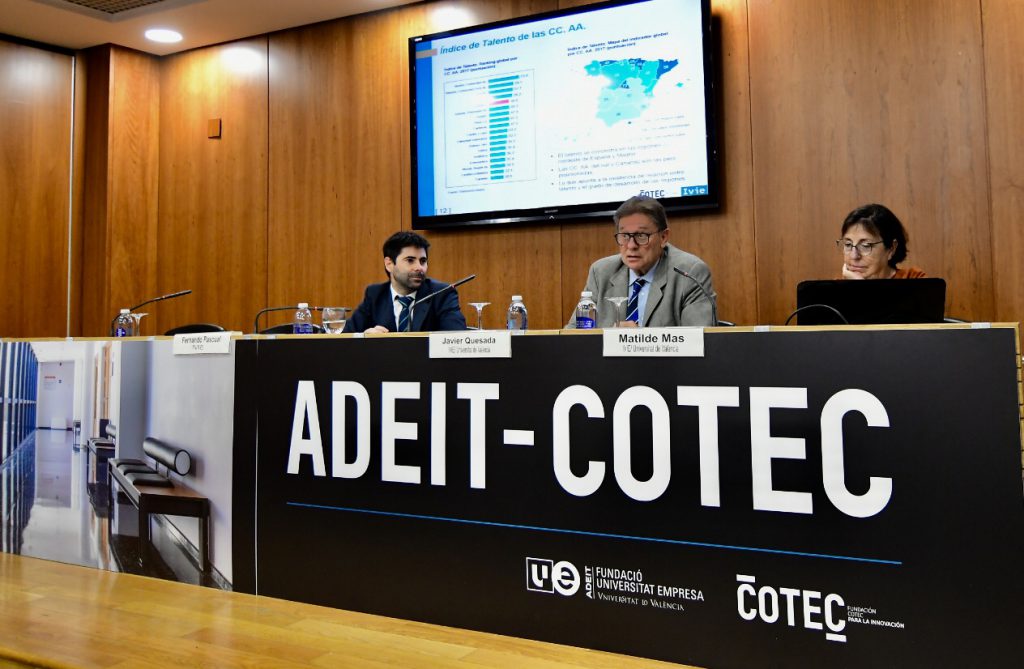Esta web utiliza cookies para que podamos ofrecerte la mejor experiencia de usuario posible. La información de las cookies se almacena en tu navegador y realiza funciones tales como reconocerte cuando vuelves a nuestra web o ayudar a nuestro equipo a comprender qué secciones de la web encuentras más interesantes y útiles.

The Valencian Community ranks 10th in the talent positioning map for Spanish regions
The region takes the lead in formal education due to the quality of its universities and high public spending on education, but ranks second to the last region in retaining talent
According to the report Mapa de talento en España (Spain’s talent positioning map) presented in ADEIT by the Cotec Foundation and the Ivie, the Valencian Community is below the national average in terms of talent, ranking 10th in the talent positioning map for Spain’s 17 autonomous communities.
The report analyzes and compares the ability to attract and retain talent across the 17 Spanish regions. This is the first such study that applies the Global Talent Competitiveness Index (GTCI) developed by INSEAD (Europe) Business School to the Spanish regions. The global index obtained for each region (42.2 for the Valencian Community and 48.6 for the Spanish average) are calculated using 52 indicators grouped in 6 talent pillars: 1. enable, 2. attract, 3. grow, 4. retrain, 5. vocational and technical skills, and 6. global knowledge skills.
As the results indicate, the Valencian Community has significant weaknesses for retaining talent in aspects such as sustainability and lifestyle, e.g. personal safety, environmental protection, doctor/patient ratio per 100,000 inhabitants, social protection or contributions to the labor pension system. The authors of the report, University of Valencia Professors, Matilde Mas and Javier Quesada, and Ivie Economist, Fernando Pascual, explained that the region of Valencia ranks second to the last, just before the Canary Islands, in retaining talent. In addition, it ranks poorly in enabling talent and issues related to the regulatory environment of markets and businesses and labor. The region is also below the average in areas such as active employment policies, productivity, ICT infrastructures, public administration efficiency or perception of corruption. Also, Valencia is below average in pillars 5 and 6 (vocational and technical skills, and global knowledge skills), ranking 10th for its low percentage of people with higher education, availability of scientists, engineers and technicians and entrepreneurial activity of new products.
However, it ranks high in pillar 3 on talent growth that includes variables related to education and access to opportunities for growth. The region appears at the top of the list in public expenditure on higher education, quality performance of its universities and in the use of virtual social and professional networks. Finally, although slightly below average, it ranks 5th in its ability to attract talent, which takes into account the degree of external openness (presence of foreign companies, transfer of technology, adults migrants and international students) as well as internal openness (acceptance of minorities and immigrants, women university students/graduates, wage gender gap and women’s leadership opportunities).










